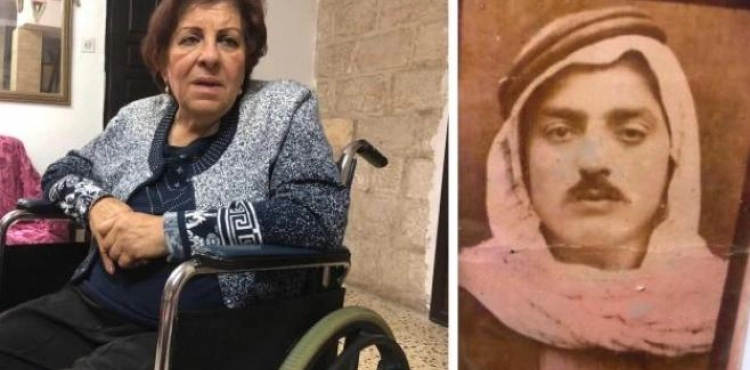A human rights center in Israel has obtained the approval of the military occupation authorities to allow a Palestinian woman to visit the cemetery of the village of Ma´lul, which was destroyed 70 years ago.
Adallah filed a petition to the Israeli High Court of Justice but the Israeli military authorities decided to allow the entry of Salwa Kubti, 71, and the 92-year-old Sobhi Mansour, who was buried three times a year to visit the tomb of her father and brother and clean the graves.
"Unfortunately, the Coptic army has been summoned from visiting the grave of its brother and father for decades ... without justification and without relying on a single legal guide. Sawsan Zahar said in a statement.
"It is true that the decision is good for her as she will finally be able to visit her father´s and her brother´s grave, which she has never seen, but this will not compensate for the years of deprivation and hardship that she suffered throughout this period."
She asked the army to allow her, her son and her nephew to visit the cemetery, and that the visit would take place within one month of the request.
"For 71 years we have not been allowed to visit our tomb and let the 92-year-old free to visit with me because he knows where the grave is. We do not yet know if my father´s grave is present because half of the Christian cemetery was washed away," she told AFP.
"Her father killed him and her mother was pregnant and gave birth 15 days after the village fell," she said.
"It´s not enough that they killed my father, but they want to hear my whispers and what will happen between me and him," she said, crying. "My feelings are confused, even the sanctity of the visit of the dead they confiscated from us."
Maaloul occupied the district of Nazareth in the Lower Galilee on 15 July 1948 and fell into the hands of the Zionist military organizations and the abandonment of its inhabitants and destroyed and settled in the ground and had two churches and a mosque.
The two churches have been restored in recent years. The mosque is still standing, but part of it is being demolished and the people of Maaloul are demanding restoration.
The Islamic cemetery still exists but is not protected. The Christian cemetery is located inside the Israeli camp and can not be reached.
The stones of the destroyed houses are accumulated at the village site, where pine trees are planted, and a military base is also located on the site.












